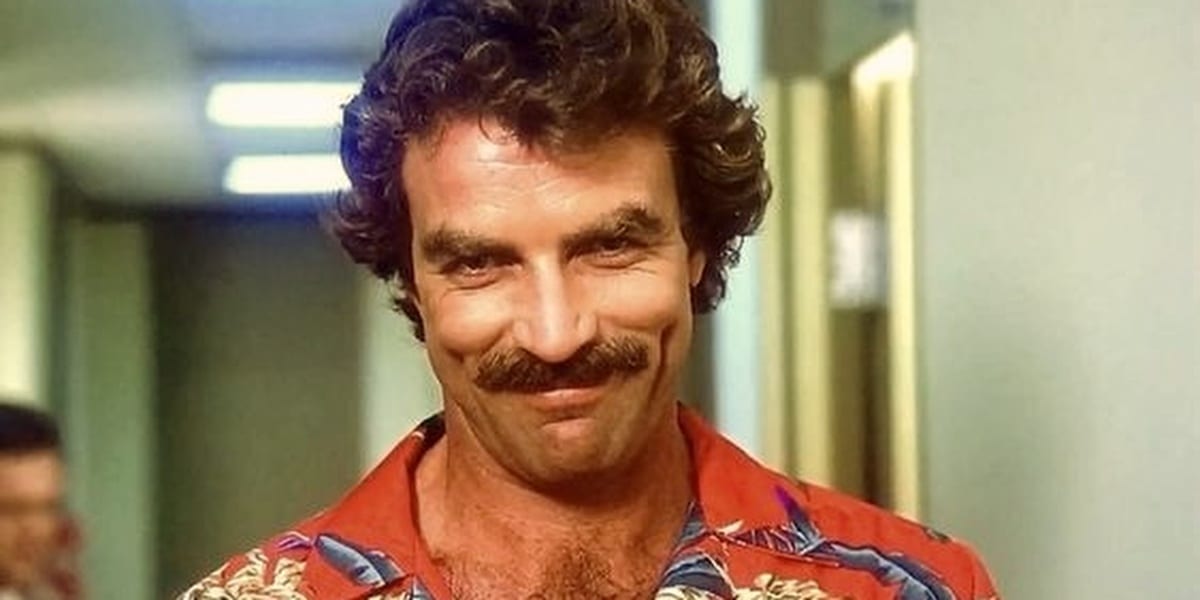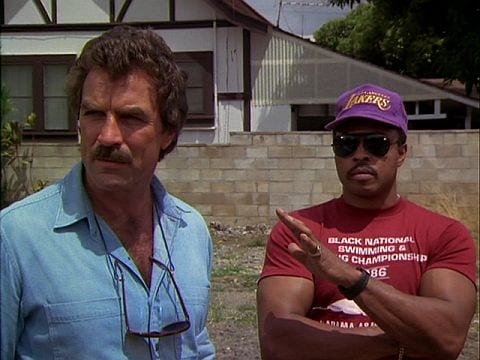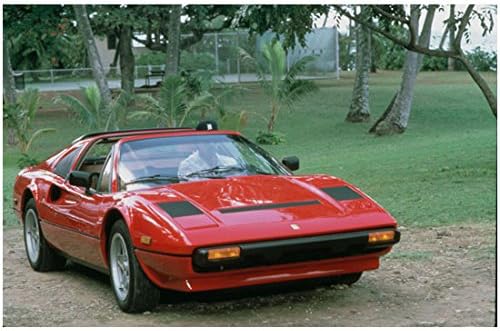Magnum was a hero in more ways than one. He served in Vietnam and continued that service, in a manner of speaking, helping those in Oahu find missing family members, acquire justice, or take criminals off the sunny, palm-tree-lined streets. He was really an everyday guy, a Tigers fan just living life. It just so happens he had a tendency to attract strange characters and extraordinary situations, which he handled tactfully—and sometimes not so gracefully, as Higgins loved to point out. While he may have messed up, he never gave up, and the fact that he kept on trying is forever an inspiration to us all.
A favorite thing that Magnum does is when he occasionally breaks the fourth wall, looking directly at the camera as though acknowledging the audience. He’ll usually offer some kind of smile or look just before the episode ends, reflecting his feelings over whatever happened in the episode’s final moments. It always stuck with me, given so few characters do that, and it always makes me laugh because the facial expression is just so perfect for the situation at hand. I applaud Selleck’s ability to capture it in such a subtle manner.
The way Magnum described it, he got “these feelings” and referred to them as his “little voice.” His little voice would alert him to danger, provide him with a conscience, or just act as a means to tell himself how he feels about something deep down, in Magnum’s own words. He believed everyone has such a thing, and I’ve always thought he was right.
Magnum, P.I. lasted eight seasons which, coupled with Magnum’s narration, allowed us to get to know him quite well. He’s made a lasting impression on pop culture, the Ferrari forever known as the “Magnum, P.I.” car. The Detroit Tigers cap and Hawaiian shirt combo will forever be Magnum’s trademark wardrobe, and only Tom Selleck can wear the mustache the way he does.






